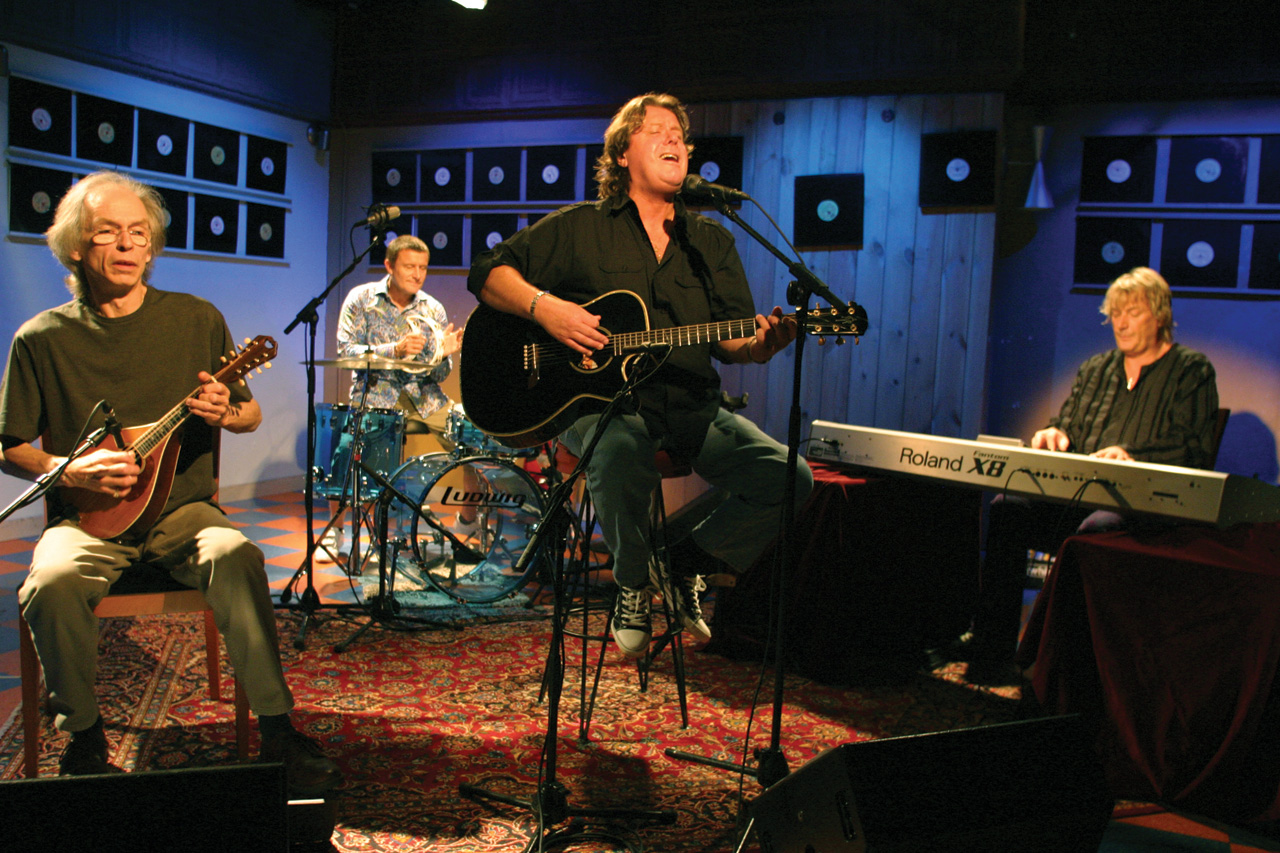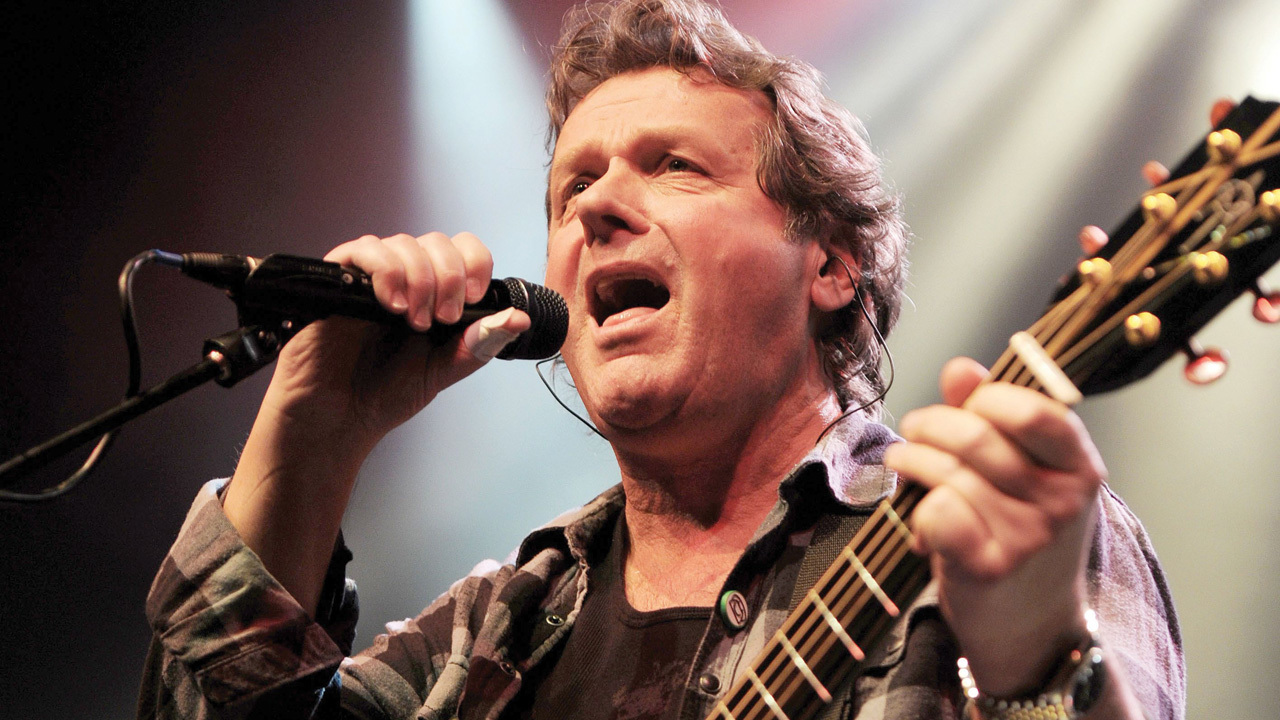Back in 1996 I met John Wetton for the first time. Rock music was ill-served by music magazines in the mid 1990s, and with the advent of Classic Rock still some years away (and Prog yet further off), I was writing for a small magazine called Frontiers. The Frontiers church was a broad one, encompassing everything from AOR and hard rock to prog and heavy metal, but the magazine’s circulation was steadily growing, driven in part by the addition of a cover-mounted promotional CD.
While the CD was geared primarily towards up-and-coming bands, we aspired to land some more established names. With his first British dates for a decade scheduled following his return from living in California, and a proposed reunion with Eddie Jobson under the UK banner (an abortive attempt on this occasion), I secured an interview with John for Frontiers and pitched participating in the CD to him.
To my pleasant surprise, John swiftly agreed to provide a recent solo track, Take These Tears, for the CD when we met in Covent Garden. From those modest beginnings developed a relationship that I prized highly for the next two decades.
To start off with we would speak on the phone about music, football and the vicissitudes of life in general, before meeting up reasonably regularly for lunch or occasionally dinner. Music was often the starting point for any discussion, but his interests were wide-ranging. Unlike many musicians whose profession necessitates travel, but who show little or no interest in the world beyond their own narcissistic private universe, John had an enquiring mind. He had absorbed much of what he had seen in the Americas, Europe and Japan over the decades, and travelled enthusiastically in his downtime. Many conversations oscillated between insightful observations on all manner of subjects and rapid witticisms, with his lyric writer’s skill to the fore.
Over the years I continued to interview John, in particular for this magazine and Classic Rock as he continued his solo career, before two tracks on his excellent Rock Of Faith album with his old Asia foil Geoff Downes were the catalyst for their Icon project. That in turn presaged a reunion of the original Asia. I threw myself enthusiastically into writing sleeve notes for various Asia, Icon and solo Wetton special releases, such as the Japanese 30th-anniversary deluxe box set of the debut Asia album. But mindful that I had crossed a line – or that a line had at least become blurred – I shied away where possible from reviewing any of John’s work.

Our paths would also cross on tour and I strived to see every solo, Asia, Icon or latterly UK show that was feasible. Personal highlights over the last decade were seeing John play a solo show at Trading Boundaries in Sussex, with UK at the Under The Bridge venue at Chelsea Football Club and a hugely atmospheric Icon concert at St Mary-le-Bow church in London.
Notwithstanding his contribution to King Crimson in particular, as well as Family, Uriah Heep and Wishbone Ash among others, in recent years Asia had become John’s principal musical focus. After three studio albums from the reunited band, John revelled in the energy brought to Asia by guitarist Sam Coulson for 2014’s Gravitas and subsequent tour.
Having battled so hard to overcome alcoholism and then survived a major heart operation, John’s zest for life was enormous and he fully embraced the concept of Carpe Diem. ‘Go, seize the day, wake up and say, this is an extraordinary life,’ he sang on Phoenix in 2008. Every conversation I had with him over the last decade was peppered with his musical adventures and future plans. Until his cancer struck, John was as busy – if not busier – than at any time in his career.
John bravely fought the colon cancer which killed him, enduring numerous rounds of chemotherapy – but was ever the optimist, with plans to tour Germany as part of the cast of the Excalibur rock opera last December and the States with his beloved Asia from March this year onwards.
In retrospect some of John’s recent lyrics become poignant: Bury Me In Willow was one of the highlights of Asia’s 2012 album XXX, while Till We Meet Again, which closed out Gravitas, takes on significance. Aside from his ear for an unforgettable melody, John was an underrated lyricist, and as some of his sleeve notes evidence he had a great command of language beyond songwriting.
John Wetton has provided a soundtrack to many lives including my own, and his musical legacy is both enormous and diverse.
Geoff Downes remembers his late friend John Wetton

